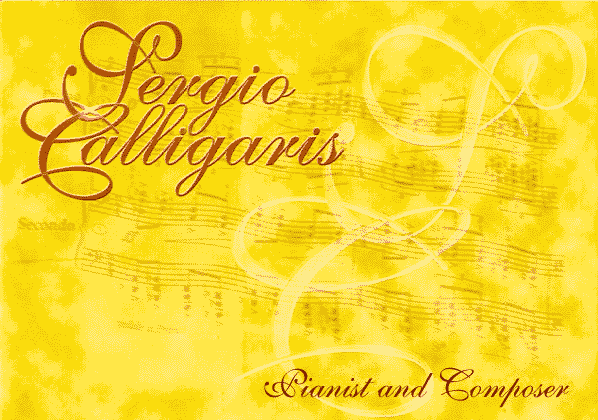 PIANO MUSIC OF LATIN AMERICA
PIANO MUSIC OF LATIN AMERICA
and works by Schumann, Chopin and Ravel
[LP: Orion Records, stereo ORS 7286]
SIDE 1
Francisco Mignone:
Prelude N.6 "Caiçaras" (3'38")
Juan B.Aguirre:
Triste (Elegy) N.4 "Cordoba" (2'30")
Floro M. Ugarte:
Prelude in G minor (3'39")
Robert Schumann:
Arabesque in C major, Op.18 (6'38")
SIDE 2
Frédéric Chopin:
Polonaise in C sharp minor, Op.26 N.1 (8'00")
Maurice Ravel:
Une barque sur l'océan, from Miroirs (8'45")
Recorded in Los Angeles, April 14, 1972
FRANCISCO MIGNONE (1897-1986), distinguished Brazilian composer, creates in his
Sixth Prelude (1932), subtitled "Caiçaras" a highly dramatic evocation of the
intensely sad songs of Brazilian slaves. This is heard in the impressive opening and
closing of the Prelude. Following a towering climax in the middle of the piece, the
lament-theme seems to fade away slowly and darkly.
JUAN B. AGUIRRE (1868-1924), Argentinian composer little known outside his
native country, went to Spain to study with Albeniz. The delightfully romantic Triste
(Elegy) No.4 recalls in its gentle melodies and intimate mood the peaceful landscape of
the hills around Córdoba.
FLORO M. UGARTE (1884-1975), one of the most distinguished of Argentinian
composers, is an exponent of the post-Romantic school in that country. His Prelude in G
minor is a composition of strong lyrical expression and subtle harmonization.
Reminiscences of Argentinian folklorical rhythms are developed dramatically in the central
section of the work.
Robert Schumann (1810-1856) was certainly one of the greatest geniuses of the
Romantic era. The Arabesque, op.18 is one of his most sophisticated compositions.
The lovely first theme is heard three times during the piece, alternating with episodes of
incomparable personality and beauty, concluding the work with a dreamy Epilogue.
The Polonaise in C sharp minor op.26 No.1 by Chopin (1810-1849) is a work of
superb inspiration, character and intensity of expression. The central section in D flat
major contains some of the most original harmonizations conceived by Chopin.
Maurice Ravel (1875-1937) wrote his Suite "Miroirs" in 1905, and from
it comes "Une Barque Sur l'Océan" (A Boat on the Ocean) - a fascinating
musical picture, in which the composer suggests with rich fantasy the eternal motion of
the waves in the ocean, illuminated by the radiant light of the sun, while far away a
sailboat is seen gently gliding, like a gigantic bird.
1972 ORION RECORDS

